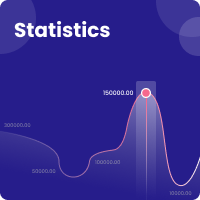Assessment of a didactic strategy for teaching and learning software modeling using project Zero
Abstract
The aim of this article is to present the assessment procedure of an innovative game strategy based on computer software internet platform, which is used for teaching and learning the software modeling in a basic course in software engineering. This is based on the Teaching for Understanding EPC, the activity Theory and Game Theory, valued through the Project Zero at Harvard University, to develop in the student the competence of modeling using the object-oriented approach. Defined the need of the using the internet to improve teaching and learning strategies; the team used a scheme for evaluating serious games through a controlled experiment using a control group, an experimental group and a team of experts. The results obtained showed that serious games developed in the Internet platform more adequately potentiate the representation and conceptual understanding of the topic of interaction between objects, specifically the sequence diagrams, compared to desktop games.References
Arias, C. A. (2014). Aportes a la calidad en la educación superior. Evaluación de prácticas en la formación pedagógica. Revista Trilogía. Ciencia, Tecnología y Sociedad, 10, 119-144. ISSN 2145-4426.
Anaya, R. (2006). Una visión de la enseñanza de la ingeniería de software como apoyo a las empresas de software. Medellín: Revista Universidad Eafit, 042(0141). ISSN 0120-033X.
Anaya, R. y Trujillo, J. (2005). Un modelo para la enseñanza en contexto de la Ingeniería del Software.IXIII Congreso Iberoamericano de Educación Superior en Computación, Cali.
Ausubel-Novak-Hanesian. (1993). Psicología Educativa: un punto de vista cognoscitivo (2° Ed.). México: Trillas.
Barrero-Osorio, F.; Maldonado, D. E. y Rodríguez, C. (2012). Calidad de la Educación Básica y Media en Colombia: diagnóstico y propuestas. Bogotá: Facultad de Economía. Universidad del Rosario.
Arnab, R.; Berta, S.; Earp, J.; Popescu, M. y Romero. M. (2012). Framing the adoption of serious games in formal education. Electron. J. e-Learning.
Bass, J. (1999). La enseñanza para la comprensión. Ed. Paidós. ISBN 950-12-5502-6.
Bourque, P. and Fairley, R. E. (2014). Guide to the Software Engineering Body of Knowledge- SWEBOOK. Version 3.0. IEEE Computer Society.
Bracken, B. (2003). Progressing from student to professional: The importance and challenges of teaching software engineering. Journal of Computing Sciences in Colleges, 19(2).
Carmona, N. y Zapata, C. (2010). Un modelo de diálogo para la Educción de Requisitos de Software. Colombia Dyna, 77(164), 209–219.
Gadner, H. (2000). La educación de la mente y el conocimiento de las disciplinas. Barcelona: Paidós.
García, N. (2013). Actividades pedagógicas centradas en la teoría cognitiva del procesamiento de la información y el uso de la estrategia mnemotecnia palabra clave: ideas para el diseño de ambientes virtuales de aprendizaje. Revista Trilogía. Ciencia, Tecnología y Sociedad, 8, 115-129. ISSN 2145-4426.
Guerrero, D., y Lemmel, K. (2013). Aplicación del estándar Swebook al diseño curricular de Ingeniería de Sistemas. Revista Trilogía. Ciencia, Tecnología y Sociedad, 8, 107-114. ISSN 2145-4426.
Guerrero, D.; Anaya, R., y Trujillo, J. (2010). Enseñanza y aprendizaje del modelado de software a través de juegos serios. Caso: Diagramas de Interacción. Biblioteca Universidad Eafit. T005.12CDG934.
Guerrero, D.; Naranjo, A. y Gutiérrez, P. (2013). Juego Serio WEB Armar la secuencia. Instituto Tecnológico Metropolitano. Recuperado de http://plataformajuegos.itm.edu.co
Landwehr, P.; Spraragen, M.; Ranganathan, B.; Carley, M. y Zyda, K. M. (2013). Games, Social Simulations, and Data—Integration for Policy Decisions. The SUDAN Game. Simul. Gaming, 4(1), 151–177.
Mailbaum, T. S. (2004). What We Teach Software Engineer In The University: Do We Take Engenieers Seriously? One Academic (‘s) View of Software Engineering Education. [En línea]. Disponible en internet http://www.cs.wm.edu/coppi/csci690-apring 2004/papers
Mortara, M.; Catalano, C. E.; Bellotti, F.; Fiucci, G.; Houry-Panchetti, P. y Petridis, M. (2013). Learning cultural heritage by serious games. J. Cult. Herit.
Perkins, D. y Brythe, D. (1994). Putting Understanding up-front. Educational Leadership, 41, 4-7.
Peshette, A. y Thornburg, D. (2008). Can Games Be Used To Teach, Learn. Lead. With Technol. ISTE (International Soc. Technol. Educ.),7.
Pozo, J. I. (1989). Teorías cognitivas del aprendizaje. Madrid: Ed. Morata.
Rebolledo-Méndez, G.; Avramides, K.; de Freitas, K. y Memarzia, S. (2009). Societal impact of a Serious Game on raising public awareness: the case of FloodSim. In Proceedings of the 2009 ACM SIGGRAPH Symposium on Video Games, pp. 15–22.
Stiller, E. y Lebland, C. (2002). Effective Software. Engineering Pedalogy, 18(2).
Zyda, M. (2007). Creating a Science of Games. Revista Communications of the ACM, 50(7), 27- 29. [En línea]. Recuperado de: http://gamepipe.usc.edu/~zyda/pubs/CACM-July2007.pdf
Zapata, C. (2007). Un Curso Inicial de Ingeniería del Software basado en Juegos. Revista Tendencias en Ingeniería de Software e Inteligencia Artificial, 17-23.
Zapata, C. (2010). A Classroom Game for Teaching Management of Software Companies. Colombia Dyna, 77(163), 290-299.










